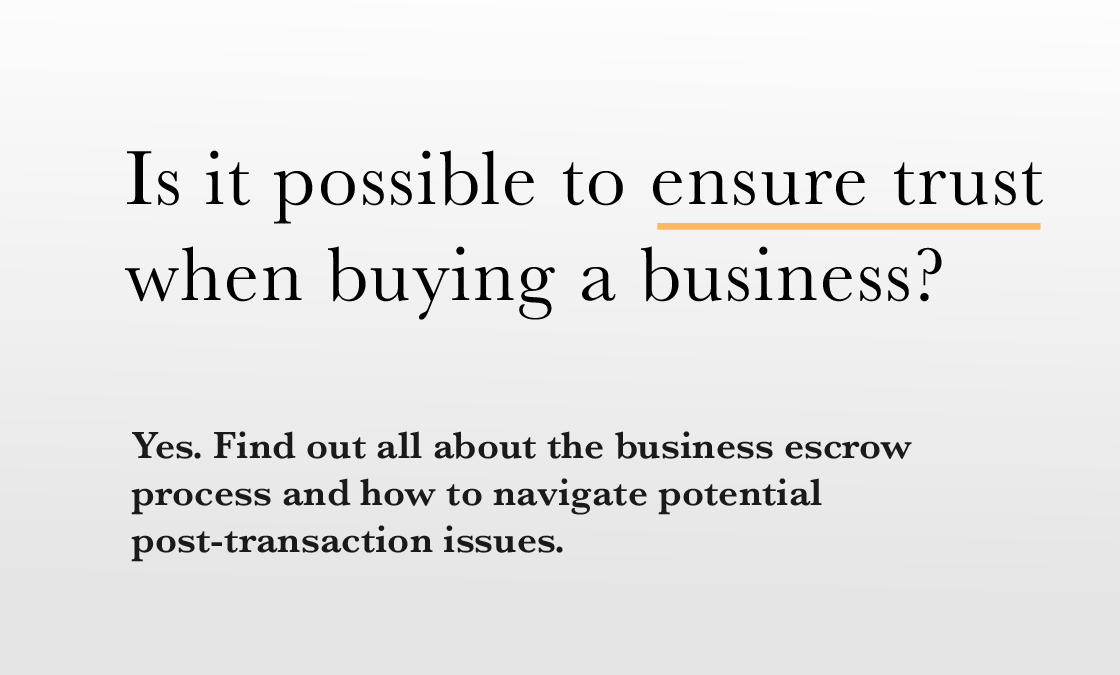There are plenty of websites, web-based apps, mobile-based apps, or other internet-based business that are actually profitable. A unique result of easy entry into these types of businesses is that it is more likely they will reach plateau below their potential due to the inexperience by the management of the original founders and developers.
Relatively inexperienced owners may have a great product but with a few level jumping moves by an experienced entrepreneur may could easily bring a multiple return.
How and Where to Sell or Buy a Website or Mobile App
Where there are opportunities to buy and sell, there are other parties that have entered to facilitate such sales. Flippa.com comes to mind. There are many others, but Flippa seems to be the most popular and the most streamlined. For example, when shipyourenemiesglitter.com blew up with viral activity they went to Flippa to sell their website. One week and 345 bids later it sold for $85,000.
Using a third party to expose your listing or to find other listings are all well in good, but even Flippa has limited involvement in the actual legal transaction. They do provide their own “Default Sales Terms” which are literally the bare minimum terms to get make the deal happen. It is also neutral in that it is not buyer or seller leaning.
This is not a criticism, it is just the reality that Flippa and these other sites do not represent either buyer or seller. They are not attorneys. It is a matter of courtesy that they provide a legal form.
There are also third party brokers that work in the same way that business brokers operate. Unlike Flippa, these brokers do represent the buyer, seller, or even both. Though they may be able to help on business terms, they are still not your attorney and often know just enough to get you in trouble.
What Exactly is Included in the Sale?
Any sale of business is usually categorized as either an asset sale or an equity sale. Usually the buyer would want an asset sale where the seller is given more favor than in a straight equity sale. Though both types occur in marketplace, it is typical in website or mobile app sale to be an asset sale.
The main advantage from a buyer to do an asset sale is that they will only purchase what they want from the business without the liabilities that may go along with it (excluding liabilities directly associated with the assets being purchased). Whereas an equity purchase generally includes all the assets and all the liabilities.
Flippa and other sites focus on asset sales. The default terms provided by Flippa are for an asset sale and the listing includes only for the sale of the domain and/or the IP of the website.
In any asset sale, what exactly is included needs to be specified in detail. For example, in the sale of shipyourenemiesglitter.com, did the purchase come with any account receivables or any inventory of glitter? Probably not, but perhaps when purchasing an online business, those assets may be included as part of the sale.
In another example, if you are purchasing a mobile application that includes access to a merchant account for which your in-app purchases are processed, is the transfer of that account contemplated within the purchase?
Agreements that the seller may have made with certain key suppliers or service providers may be an asset in itself; however, those will need to be specified and transferred as the buyer may or may not want the liability associated with such contracts.
Since sometimes it can be difficult to articulate each and every asset of a business, an all-inclusive clause that specifies that all assets related to the “Business” (where “Business” is a defined term within the agreement) is included in the sale except those assets listed. Cash on hand or account receivables are often not included.
Before any sale, make sure both parties are clear what exactly is on the table and that the sale agreement specifies this in eloquent detail.
Does the Seller Really Own Everything?
Buyers should be specifically careful to ensure that the assets are really owned by the Seller. Though most sale agreement templates will have the proper representations made by the seller stating that the seller owns the assets being transferred, but the reality is that the seller may have a good faith belief that they do own everything but they actually do not.
The general rule for intellectual property is that the creator is the one who owns the IP. That means that unless there is an exception (like in an employee-employer relationship) or the proper documentation has not been completed, some developer across the world could own all or part of IP of the business.
Intellectual Property Assignment
With intellectual property developed by founders, it is often unclear whether the intellectual property is owned by the founders or the company. This is a common problem regardless of any sale. The same goes with outside consultants.
It is advisable to have the seller prepare or present intellectual property assignments by all those individuals and companies that may have contributed to the project related to the assets being purchased.
If necessary, IP assignments need to be signed and satisfied before the closing as a contingency of the sale itself.
Third Party Transfer Consent
Some products may use some open or closed sourced products that are licensed and such transfer may require the licensor (third party) consent before completing the sale. Like IP assignments, such third-party consents should be contingency that needs satisfied before completing the sale.
Limits of Liability and Indemnification
Probably the most important liability risk in purchasing a business is the possible liability that may follow the sale to the buyer. For example, what if you purchase a business and the seller had sold a bunch of gift certificates. Those gift certificates could be an item that follows the business and suddenly the buyer has is forced to honor these certificates.
The opposite is also true. The buyer may cause some liability and a zealous plaintiff may choose to sue both the former owner and the new owner. The seller should not be responsible for something caused by the buyer.
Any sale agreement should specify that the seller should be responsible for everything up to the sale of the business and the buyer for everything after the sale of the business.
Escrow
Sites like Flippa are not escrow companies, but they do utilize escrow companies to help execute a sale. Escrow companies are often used in any asset purchase of a business, but an escrow company that is experienced in these types of internet and intellectual property based sales are preferred to ensure a smooth transaction.
Escrow’s primary purpose is to act as security to hold funds (or property) while the property is being transferred. For example, it is impossible to have a true simultaneous sale where payment is through one system and a domain transfer through another system. In an escrow-based transaction, the escrow company can be paid the funds by the buyer and then transfer to seller upon seller’s transfers of the domain to the buyer.
Escrow Period and Contingencies
When you decide to agree on a sale of a website or mobile app, the buyer and seller may decide to complete the transaction immediately upon reaching an agreement or to conduct the closing activities on a later date. In more complex transactions, it is more common to have some kind of “escrow period.” These can also be called a due diligence period or feasibility period.
In any case, such periods begin with an executed sale agreement. The escrow period may be for a certain time period or upon the happening of certain events. The period may include a way for seller or buyer to back out or it could provide no way to back out without a penalty.
With website or mobile app based sales, there are common considerations made regarding some things that need to occur before closing. For example, the buyer may need satisfaction before closing that the seller’s IP has been properly assigned and so the closing may be contingent upon the receipt of certain IP assignments. Failure to satisfy such contingencies may permit the Buyer to break the contract without liability.
In another case, the contract could provide that the buyer provide a deposit, escrow amount, or down payment in the beginning of the transaction while the buyer evaluates or reviews the accounting records of seller. The contract could also provide that if the buyer backs out for a reason other than fraudulent representation of the books by seller, the buyer would lose its deposit.
The variations of working with contingencies, deposits, closing dates, and escrow instructions can be designed to mitigate risk by either party to ensure not only a smooth transaction but a safe investment by the buyer.
The Closing of the Sale
Whether the closing happens right away or if at a later date, what happens at closing should be spelled out specifically. A major criticism that I have with the default terms presented by Flippa is they do not contemplate additional documents that should be signed at closing that memorializes the transfer of the assets. For example a bill of sale is the common instrument to memorialize such a transfer.
Lastly, often the seller may have certain product or service agreements with third parties that may need to be transferred to the seller. If this is the case, an assignment and assumption agreement would also be signed at closing and perhaps even a third party consent related to these contract agreements.


![Wrap Up | Behind the Buy [8/8] [309]](https://www.pashalaw.com/wp-content/uploads/2020/11/Pasha_BehindTheBuy_Episode8-1024x683.jpg)
![Is it all over? | Behind the Buy [7/8] [308]](https://www.pashalaw.com/wp-content/uploads/2020/09/iStock-1153248856-overlay-scaled-1024x683.jpg)
![Fight for Your [Trademark] Rights | Behind the Buy [6/8] [307]](https://www.pashalaw.com/wp-content/uploads/2020/07/Fight-for-your-trademark-right-1024x683.jpg)

![They Let It Slip | Behind the Buy [5/8] [306]](https://www.pashalaw.com/wp-content/uploads/2020/06/Behind-the-buy-they-let-it-slip-1024x683.jpg)




![Law in the Digital Age: Exploring the Legal Intricacies of Artificial Intelligence [e323]](https://www.pashalaw.com/wp-content/uploads/2023/11/WhatsApp-Image-2023-11-21-at-13.24.49_4a326c9e-300x212.jpg)
![Unraveling the Workforce: Navigating the Aftermath of Mass Layoffs [e322]](https://www.pashalaw.com/wp-content/uploads/2023/07/Untitled-design-23-300x212.png)
![Return to the Office vs. Remote: What Can Employers Legally Enforce? [e321]](https://www.pashalaw.com/wp-content/uploads/2023/01/Pasha_LSSB_321_banner-300x212.jpg)
![Explaining the Hans Niemann Chess Lawsuit v. Magnus Carlsen [e320]](https://www.pashalaw.com/wp-content/uploads/2022/10/LAWYER-EXPLAINS-7-300x169.png)
![California v. Texas: Which is Better for Business? [313]](https://www.pashalaw.com/wp-content/uploads/2021/07/Pasha_LSSB_CaliforniaVSTexas-300x212.jpg)
![Buyers vs. Sellers: Negotiating Mergers & Acquisitions [e319]](https://www.pashalaw.com/wp-content/uploads/2022/06/Pasha_LSSB_BuyersVsSellers_banner-300x212.jpg)
![Employers vs. Employees: When Are Employment Restrictions Fair? [e318]](https://www.pashalaw.com/wp-content/uploads/2022/05/Pasha_LSSB_EmployeesVsEmployers_banner-1-300x212.jpg)
![Vaccine Mandates Supreme Court Rulings [E317]](https://www.pashalaw.com/wp-content/uploads/2022/02/WhatsApp-Image-2022-02-11-at-4.10.32-PM-300x212.jpeg)
![Business of Healthcare [e316]](https://www.pashalaw.com/wp-content/uploads/2021/11/Pasha_LSSB_BusinessofHealthcare_banner-300x212.jpg)
![Social Media and the Law [e315]](https://www.pashalaw.com/wp-content/uploads/2021/10/WhatsApp-Image-2021-10-06-at-1.43.08-PM-300x212.jpeg)
![Defining NDA Boundaries: When does it go too far? [e314]](https://www.pashalaw.com/wp-content/uploads/2021/09/Pasha_LSSB_NDA_WordPress-2-300x212.jpg)
![More Than a Mistake: Business Blunders to Avoid [312] Top Five Business Blunders](https://www.pashalaw.com/wp-content/uploads/2021/06/Pasha_LSSB_Blunders_WP-1-300x212.jpg)
![Is There a Right Way to Fire an Employee? We Ask the Experts [311]](https://www.pashalaw.com/wp-content/uploads/2021/02/Pasha_LSSB_FireAnEmployee_Website-300x200.jpg)
![The New Frontier: Navigating Business Law During a Pandemic [310]](https://www.pashalaw.com/wp-content/uploads/2020/12/Pasha_LSSB_Epidsode308_Covid_Web-1-300x200.jpg)
![Wrap Up | Behind the Buy [8/8] [309]](https://www.pashalaw.com/wp-content/uploads/2020/11/Pasha_BehindTheBuy_Episode8-300x200.jpg)
![Is it all over? | Behind the Buy [7/8] [308]](https://www.pashalaw.com/wp-content/uploads/2020/09/iStock-1153248856-overlay-scaled-300x200.jpg)
![Fight for Your [Trademark] Rights | Behind the Buy [6/8] [307]](https://www.pashalaw.com/wp-content/uploads/2020/07/Fight-for-your-trademark-right-300x200.jpg)
![They Let It Slip | Behind the Buy [5/8] [306]](https://www.pashalaw.com/wp-content/uploads/2020/06/Behind-the-buy-they-let-it-slip-300x200.jpg)
![Mo’ Investigation Mo’ Problems | Behind the Buy [4/8] [305]](https://www.pashalaw.com/wp-content/uploads/2020/05/interrobang-1-scaled-300x200.jpg)
![Broker or Joker | Behind the Buy [3/8] [304] Behind the buy - Broker or Joker](https://www.pashalaw.com/wp-content/uploads/2020/04/Joker-or-Broker-1-300x185.jpg)
![Intentions Are Nothing Without a Signature | Behind the Buy [2/8] [303]](https://www.pashalaw.com/wp-content/uploads/2020/04/intentions-are-nothing-without-a-signature-300x185.jpg)
![From First Steps to Final Signatures | Behind the Buy [1/8] [302]](https://www.pashalaw.com/wp-content/uploads/2020/04/first-steps-to-final-signatures-300x185.jpg)
![The Dark-side of GrubHub’s (and others’) Relationship with Restaurants [e301]](https://www.pashalaw.com/wp-content/uploads/2015/04/When-Competition-Goes-Too-Far-Ice-Cream-Truck-Edition-300x201.jpg)
![Ultimate Legal Breakdown of Internet Law & the Subscription Business Model [e300]](https://www.pashalaw.com/wp-content/uploads/2019/05/Ultimate-Legal-Breakdown-of-Internet-Law-the-Subscription-Business-Model-300x196.jpg)
![Why the Business Buying Process is Like a Wedding?: A Legal Guide [e299]](https://www.pashalaw.com/wp-content/uploads/2019/03/futura-300x169.jpg)
![Will Crowdfunding and General Solicitation Change How Companies Raise Capital? [e298]](https://www.pashalaw.com/wp-content/uploads/2018/11/Will-Crowdfunding-and-General-Solicitation-Change-How-Companies-Raise-Capital-300x159.jpg)
![Pirates, Pilots, and Passwords: Flight Sim Labs Navigates Legal Issues (w/ Marc Hoag as Guest) [e297]](https://www.pashalaw.com/wp-content/uploads/2018/07/flight-sim-labs-300x159.jpg)
![Facebook, Zuckerberg, and the Data Privacy Dilemma [e296] User data, data breach photo by Pete Souza)](https://www.pashalaw.com/wp-content/uploads/2018/04/data-300x159.jpg)
![What To Do When Your Business Is Raided By ICE [e295] I.C.E Raids business](https://www.pashalaw.com/wp-content/uploads/2018/02/ice-cover-300x159.jpg)
![General Contractors & Subcontractors in California – What you need to know [e294]](https://www.pashalaw.com/wp-content/uploads/2018/01/iStock-666960952-300x200.jpg)
![Mattress Giants v. Sleepoplis: The War On Getting You To Bed [e293]](https://www.pashalaw.com/wp-content/uploads/2017/12/sleepopolis-300x159.jpg)
![The Harassment Watershed [e292]](https://www.pashalaw.com/wp-content/uploads/2017/12/me-2-300x219.jpg)
![Investing and Immigrating to the United States: The EB-5 Green Card [e291]](https://www.pashalaw.com/wp-content/uploads/2012/12/eb-5-investment-visa-program-300x159.jpg)
![Responding to a Government Requests (Inquiries, Warrants, etc.) [e290] How to respond to government requests, inquiries, warrants and investigation](https://www.pashalaw.com/wp-content/uploads/2017/10/iStock_57303576_LARGE-300x200.jpg)
![Ultimate Legal Breakdown: Employee Dress Codes [e289]](https://www.pashalaw.com/wp-content/uploads/2017/08/Ultimate-Legal-Breakdown-Template-1-300x159.jpg)
![Ultimate Legal Breakdown: Negative Online Reviews [e288]](https://www.pashalaw.com/wp-content/uploads/2017/06/Ultimate-Legal-Breakdown-Online-Reviews-1-300x159.jpg)
![Ultimate Legal Breakdown: Social Media Marketing [e287]](https://www.pashalaw.com/wp-content/uploads/2017/06/ultimate-legal-breakdown-social-media-marketing-blur-300x159.jpg)
![Ultimate Legal Breakdown: Subscription Box Businesses [e286]](https://www.pashalaw.com/wp-content/uploads/2017/03/ultimate-legal-breakdown-subscription-box-services-pasha-law-2-300x159.jpg)
![Can Companies Protect Against Foreseeable Misuse of Apps [e285]](https://www.pashalaw.com/wp-content/uploads/2017/01/iStock-505291242-300x176.jpg)
![When Using Celebrity Deaths for Brand Promotion Crosses the Line [e284]](https://www.pashalaw.com/wp-content/uploads/2017/01/celbrity-300x159.png)
![Are Employers Liable When Employees Are Accused of Racism? [e283] Racist Employee](https://www.pashalaw.com/wp-content/uploads/2016/12/Are-employers-liable-when-an-employees-are-accused-of-racism-300x159.jpg)
![How Businesses Should Handle Unpaid Bills from Clients [e282] What to do when a client won't pay.](https://www.pashalaw.com/wp-content/uploads/2016/12/How-Businesses-Should-Handle-Unpaid-Bills-to-Clients-300x159.png)
![Can Employers Implement English Only Policies Without Discriminating? [e281]](https://www.pashalaw.com/wp-content/uploads/2016/11/Can-Employers-Impliment-English-Only-Policies-Without-Discriminating-300x159.jpg)
![Why You May No Longer See Actors’ Ages on Their IMDB Page [e280]](https://www.pashalaw.com/wp-content/uploads/2016/10/IMDB-AGE2-300x159.jpg)
![Airbnb’s Discrimination Problem and How Businesses Can Relate [e279]](https://www.pashalaw.com/wp-content/uploads/2016/09/airbnb-300x159.jpg)
![What To Do When Your Amazon Account Gets Suspended [e278]](https://www.pashalaw.com/wp-content/uploads/2016/09/What-To-Do-When-Your-Amazon-Account-Gets-Suspended-1-300x200.jpg)
![How Independent Artists Reacted to Fashion Mogul Zara’s Alleged Infringement [e277]](https://www.pashalaw.com/wp-content/uploads/2016/08/How-Independent-Artists-Reacted-to-Fashion-Mogul-Zaras-Alleged-Infringement--300x159.jpg)
![Can Brave’s Ad Replacing Software Defeat Newspapers and Copyright Law? [e276]](https://www.pashalaw.com/wp-content/uploads/2016/08/Can-Braves-Ad-Replacing-Software-Defeat-Newspapers-and-Copyright-Law-300x159.jpg)
![Why The Roger Ailes Sexual Harassment Lawsuit Is Far From Normal [e275]](https://www.pashalaw.com/wp-content/uploads/2016/07/WHY-THE-ROGER-AILES-SEXUAL-HARASSMENT-LAWSUIT-IS-FAR-FROM-NORMAL-300x159.jpeg)
![How Starbucks Turned Coveted Employer to Employee Complaints [e274]](https://www.pashalaw.com/wp-content/uploads/2016/07/iStock_54169990_LARGE-300x210.jpg)
